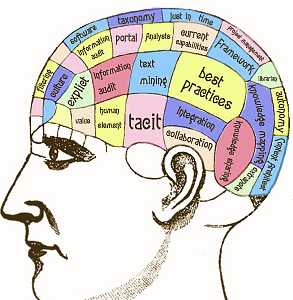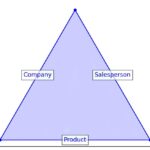Sometimes, what you don’t know can actually work in your favor—especially when starting a business.
If you’re deeply experienced in a particular industry, you likely understand the ins and outs, the politics, and the pain points. That level of knowledge can be incredibly valuable. But here’s the flip side: too much industry knowledge can actually blind you to opportunities.
The Problem with Being an Insider
Industry veterans often see all the reasons why something won’t work. They’ve lived through regulatory red tape, pricing wars, supply chain issues, and customer behavior quirks. So when a new idea presents itself, insiders might immediately list a dozen reasons why it could fail. Their experience becomes a filter—and not always a helpful one.
This phenomenon is known in psychology as “functional fixedness.” It occurs when people are so used to seeing things a certain way that they can’t imagine a different approach.
Enter the Outsider Advantage
Now, consider the outsider. They’re not weighed down by “how things have always been done.” Instead, they approach the problem or opportunity with a fresh perspective. They’re more likely to ask “Why not?” than “Why?”
In fact, some of the most successful businesses have been launched by people with little to no experience in the industry they disrupted. Think of Sara Blakely, the founder of Spanx, who had no background in fashion or manufacturing when she revolutionized shapewear. Or Elon Musk, who had zero experience in automotive before launching Tesla, now a global leader in electric vehicles.
These entrepreneurs didn’t know what they “shouldn’t” try, so they simply tried anyway—and built massive success as a result.
Beating a New Path
At the heart of entrepreneurship is belief—belief in your ability to figure things out as you go. When outsiders enter a market, they’re often better positioned to spot new trends, shifts in consumer behavior, or outdated business models that need disruption.
Serious entrepreneurs don’t let a lack of industry knowledge hold them back. Instead, they trust their ability to learn, pivot, and beat a new path toward opportunity.
Of course, this doesn’t mean you should charge blindly into an unfamiliar industry. Do your research. Build a network. Learn from others. But don’t let the fear of not being an “expert” keep you from pursuing a great idea.
Validate the Idea, Not the Resume
One powerful approach is to test your idea quickly and cheaply. Instead of trying to become an expert first, build a Minimum Viable Product (MVP) and put it in front of real customers. The Lean Startup method by Eric Ries is an excellent guide to this approach.
A helpful framework for assessing new ideas is outlined in the post How to Validate a Business Idea Before You Start, which offers practical steps to test a concept before fully committing to it. It emphasizes validating your assumptions by getting real feedback from potential customers, identifying whether there’s a paying market, and adjusting your idea based on actual data—not just gut instinct or industry experience. This approach is especially useful for entrepreneurs entering an unfamiliar industry, allowing them to move forward with greater confidence and reduced risk.
Challenge Your Own Assumptions
Sometimes, we get so close to an idea or industry that we stop questioning it. That’s where the power of an outsider’s mind comes in—asking naïve questions, proposing “dumb” ideas, and challenging the status quo.
If you’re already an insider, consider partnering with someone outside your industry for a fresh set of eyes. Encourage diversity of thought in your team. Create space for unfiltered feedback.
And if you’re an outsider? Don’t apologize for it. Lean into your unique perspective. Your “ignorance” might just be your greatest entrepreneurial asset.
What’s one assumption you’re making about your industry that might be worth challenging today?












